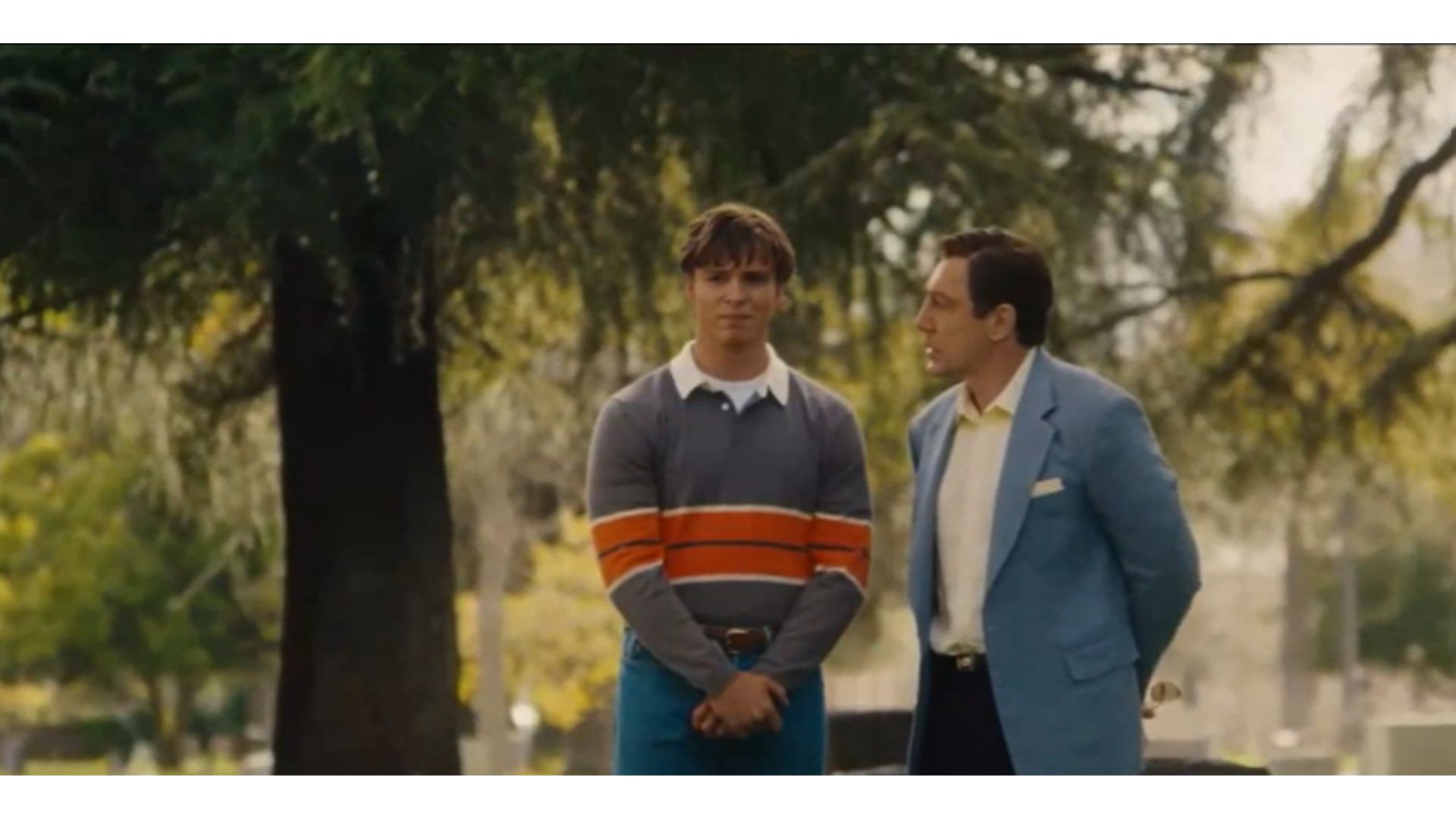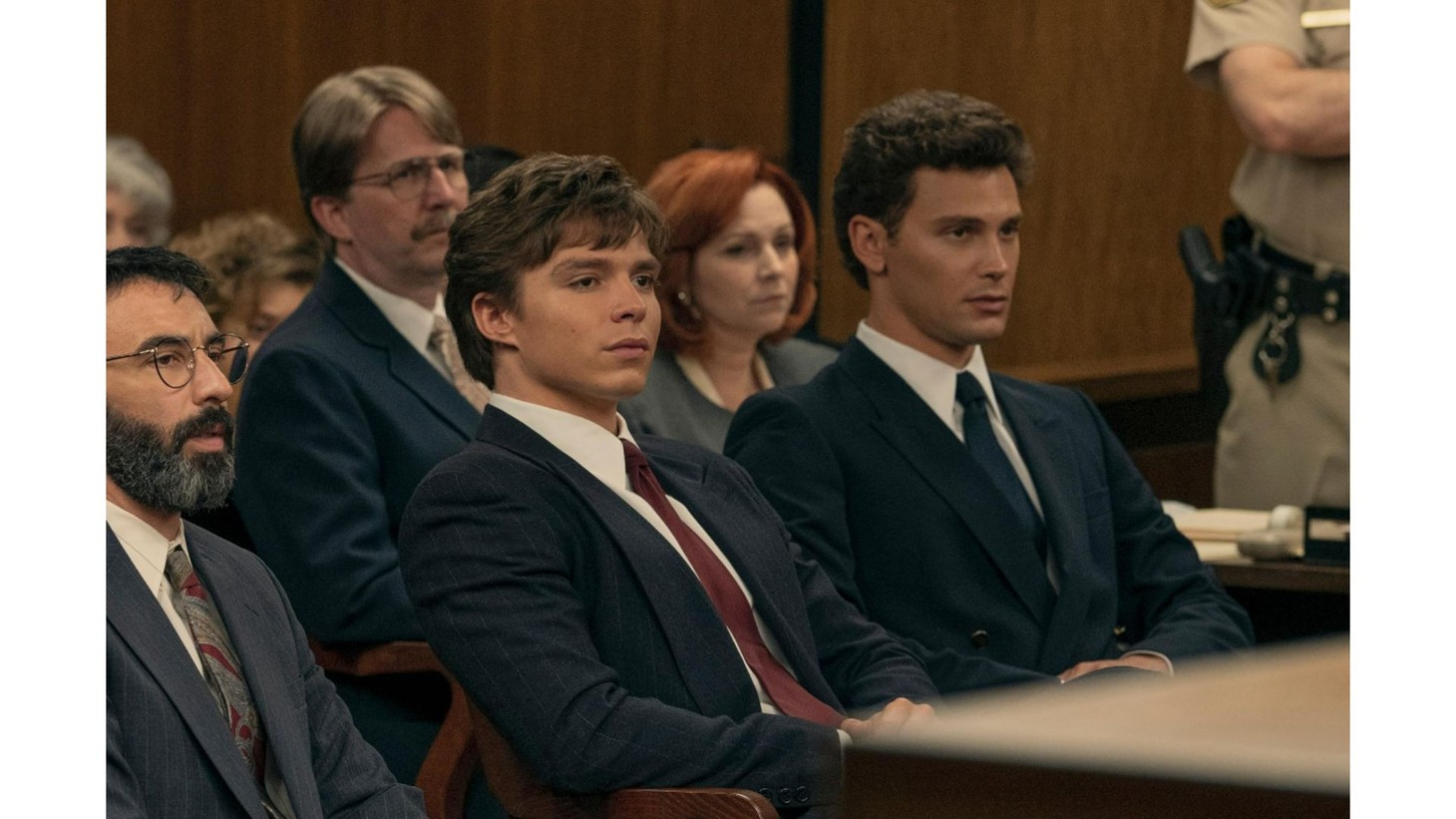The mere thought of Erik Menendez, a name many people remember from a very different time, being linked with a globally recognized fashion powerhouse like Calvin Klein, well, it's almost enough to make you pause. This isn't just about clothes or a campaign; it really is about a concept that stretches the boundaries of what we expect from public figures and big brands. It stirs up a whole lot of feelings and questions, sparking conversations that go far beyond the usual fashion talk, you know?
Such an idea, frankly, pushes us to think about how we view people who have been through incredibly public and difficult situations. It makes us wonder about second chances, about how society remembers and perhaps re-evaluates individuals. For a brand like Calvin Klein, known for its bold and sometimes controversial marketing, considering a figure like Erik Menendez could be seen as an utterly daring move, or perhaps, a misstep that would generate immense discussion, as a matter of fact.
This hypothetical scenario forces us to look closely at the interplay between past notoriety and present-day cultural relevance. It asks us to consider the power of image, the weight of history, and the often-unpredictable nature of public opinion. It's a bit of a thought experiment, really, but one that sheds light on our collective fascination with stories of transformation, or even just the unexpected, in the world of advertising and public life, more or less.
- Who Is The Lead Singer Of The Rolling Stones
- Why Is 12 Police
- Vanessa Lynn Williams Jim Skrip
- Are Snooki And Jionni Still Married
- Rick Owen And His Wife
Table of Contents
- Who is Erik Menendez? A Look Back
- Personal Details and Background
- Why This Idea - Erik Menendez Modeling Calvin Klein - Sparks So Much Talk?
- The Unforeseen Intersection of Past and Present
- What Are The Ethical Considerations Around Erik Menendez Modeling Calvin Klein?
- Brand Image and Public Perception
- How Could Erik Menendez Modeling Calvin Klein Reshape Fashion Advertising?
- Beyond the Usual Faces
Who is Erik Menendez? A Look Back
Erik Menendez, along with his brother Lyle, became a household name during a highly publicized trial in the 1990s. Their story, which involved the killing of their parents, captivated people across the globe, and it really did spark a massive amount of discussion about family dynamics, privilege, and the justice system. For many, his name remains linked to those events, and that connection is pretty strong, even decades later. He's a figure who exists in the collective memory as a part of a particularly shocking and complex legal drama, and that's basically how most people know him.
Personal Details and Background
| Name | Erik Galen Menendez |
| Date of Birth | November 27, 1970 |
| Known For | Conviction for the murders of his parents, Jose and Kitty Menendez, alongside his brother Lyle. |
| Current Status | Incarcerated |
Why This Idea - Erik Menendez Modeling Calvin Klein - Sparks So Much Talk?
The idea of Erik Menendez modeling for a brand as prominent as Calvin Klein is, quite simply, jarring for many. It creates a powerful contrast between his past and the glossy, aspirational world of high fashion. This unexpected pairing is what makes it so compelling to discuss. It forces people to confront their own preconceived notions about who gets to be a public face, and what it means for a brand to associate with someone with such a widely known, difficult history. It really is a conversation starter, isn't it?
It's not just about shock value; there's a deeper layer to why this concept captures attention. Society often grapples with questions of redemption, forgiveness, and the permanence of a public label. When a name like Erik Menendez is brought into a context like fashion, it challenges the very idea of "cancel culture" versus the possibility of moving beyond one's most infamous moments. It's almost like a test of our collective willingness to separate the person from their past actions, or to question if such a separation is even possible, or right, in the public eye. People are, in a way, always fascinated by stories that defy easy categorization.
The Unforeseen Intersection of Past and Present
This hypothetical situation highlights a fascinating, and perhaps uncomfortable, intersection of a very specific past with a very current, image-driven present. Erik Menendez's story belongs to a different era of media, one where news cycles moved slower, but the impact of a high-profile case could linger for decades. Now, placing him in a modern advertising campaign would mean bringing that historical weight into a fast-paced, social media-driven environment. It would force a direct confrontation between long-held public memory and the immediate, often fleeting, demands of contemporary marketing. It's like your personal history suddenly appearing on a billboard, you know?
The discussion it would ignite would touch upon how society deals with people who have served time, whether there's a path for them to re-enter public life, and what role, if any, brands should play in that. It makes us think about the nature of celebrity itself – whether it's earned, given, or simply a byproduct of notoriety. The concept of Erik Menendez modeling Calvin Klein, basically, becomes a mirror reflecting our own complex feelings about justice, second chances, and the media's power to shape narratives. It would be a moment that truly makes you stop and consider a whole lot of things, to be honest.
What Are The Ethical Considerations Around Erik Menendez Modeling Calvin Klein?
Any discussion about Erik Menendez modeling Calvin Klein simply must address the significant ethical considerations involved. The primary concern, of course, revolves around the victims of his crimes and their families. Associating a brand with someone convicted of such serious offenses could be seen as deeply insensitive, potentially causing immense pain and re-traumatization. It raises questions about whether a commercial entity should profit from, or normalize, the public image of someone with such a history. Frankly, it's a very delicate line to walk, and it could easily be perceived as exploitative or disrespectful to those who suffered.
There's also the broader question of moral responsibility for a major brand. What message does it send to the public when a company chooses a figure with a past like Erik Menendez's for a campaign? It could be interpreted as prioritizing controversy and attention over ethical considerations and public sentiment. This isn't just about selling products; it's about a brand's values and its role in society. The backlash, if such a campaign were to happen, would likely be swift and intense, as people are often very protective of the boundaries between commerce and morality. It's an issue that, honestly, goes right to the core of what we expect from corporate citizenship.
Brand Image and Public Perception
The potential impact on Calvin Klein's brand image from Erik Menendez modeling Calvin Klein would be immense and, frankly, unpredictable. While some might see it as a bold, boundary-pushing move in line with the brand's history of provocative advertising, many others would likely view it as a severe misjudgment. The perception could shift from edgy and modern to tone-deaf and irresponsible. A brand's reputation is built on trust and resonance with its audience, and a decision like this could shatter that trust for a significant portion of consumers. It's a very real risk, basically.
Different audience segments would react in various ways. Younger consumers, perhaps less familiar with the full history of the Menendez case, might be intrigued by the novelty or the "rebel" aspect. However, older generations, who lived through the trial, might find it deeply offensive. The discussion would inevitably overshadow the actual clothing or product being advertised, turning the campaign into a debate about ethics and morality rather than fashion. This kind of move could, in a way, redefine what it means for a brand to be "controversial," pushing it into a realm that few would consider positive or beneficial in the long run. It truly is a situation where public opinion could turn on a dime, you know?
How Could Erik Menendez Modeling Calvin Klein Reshape Fashion Advertising?
If Erik Menendez were to model for Calvin Klein, it would certainly represent a significant departure from traditional fashion advertising norms. Typically, brands opt for celebrities, models, or influencers who embody aspiration, beauty, or a generally positive public image. Introducing a figure with a past as complex and controversial as his would signal a radical shift in casting philosophy. It might suggest that notoriety, regardless of its source, is now a valuable commodity in the quest for attention. This move could, perhaps, open the door for other brands to consider similarly unconventional or even infamous personalities, basically redefining what makes someone "fit" for a campaign. It's almost like a challenge to the established rules of who gets to be seen as a style icon.
This hypothetical scenario could push fashion advertising into a much darker, more provocative territory, moving beyond mere sensuality or artistic expression into something that actively confronts societal taboos. It would force a conversation about the purpose of advertising itself: Is it solely to sell products, or can it also serve as a commentary on culture, even if that commentary is deeply unsettling? Such a campaign might suggest that the ultimate goal is to generate discussion, no matter the cost, thereby making the "buzz" the primary product. It truly is a thought that makes you consider the future of brand messaging, and how far is too far, in a way.
Beyond the Usual Faces
The fashion industry has, for some time, been exploring the idea of using "real" people or those with unique stories, moving beyond the supermodel archetype. This has included diverse body types, ages, and backgrounds. However, Erik Menendez modeling Calvin Klein would take this concept to an entirely different level. It wouldn't just be about breaking traditional beauty standards; it would be about challenging the very moral and ethical standards of public representation. It would be an extreme extension of the "authenticity" trend, perhaps pushing it into a realm of uncomfortable realism that few brands have dared to touch. It’s like, you know, going from a slight curveball to a full-on wild pitch.
This kind of casting could, in theory, pave the way for other figures with complicated pasts to find a place in mainstream advertising, or it could be a one-off experiment that quickly backfires. It would force other brands to re-evaluate their own strategies and consider how far they are willing to go to capture attention in a crowded marketplace. The conversation would shift from "who looks good in these clothes?" to "what does this person represent, and what does that say about the brand?" It truly is a situation that would make the fashion world, and frankly, the public, think deeply about the boundaries of art, commerce, and human experience, at the end of the day.
Related Resources:



Detail Author:
- Name : Dr. Timothy Daniel
- Username : nquitzon
- Email : rau.leo@hotmail.com
- Birthdate : 1991-02-27
- Address : 768 Kuhn Parkway Suite 536 West Abagailview, MS 33769
- Phone : 774.463.4865
- Company : Dietrich-Lebsack
- Job : Food Tobacco Roasting
- Bio : Et porro sit amet sequi sit doloremque. Quaerat eos itaque modi aut. Rem qui nam incidunt officiis. Sit quis ut incidunt.
Socials
twitter:
- url : https://twitter.com/bret_harber
- username : bret_harber
- bio : Itaque ipsa quibusdam fugiat et. Minima nemo quasi deserunt ut voluptatem porro. Debitis non laboriosam in in possimus. Eum aut et harum tempora et aut.
- followers : 5902
- following : 223
instagram:
- url : https://instagram.com/bretharber
- username : bretharber
- bio : Ea beatae ea aliquid explicabo voluptatum laboriosam nisi. Quia accusamus occaecati id.
- followers : 4676
- following : 2066